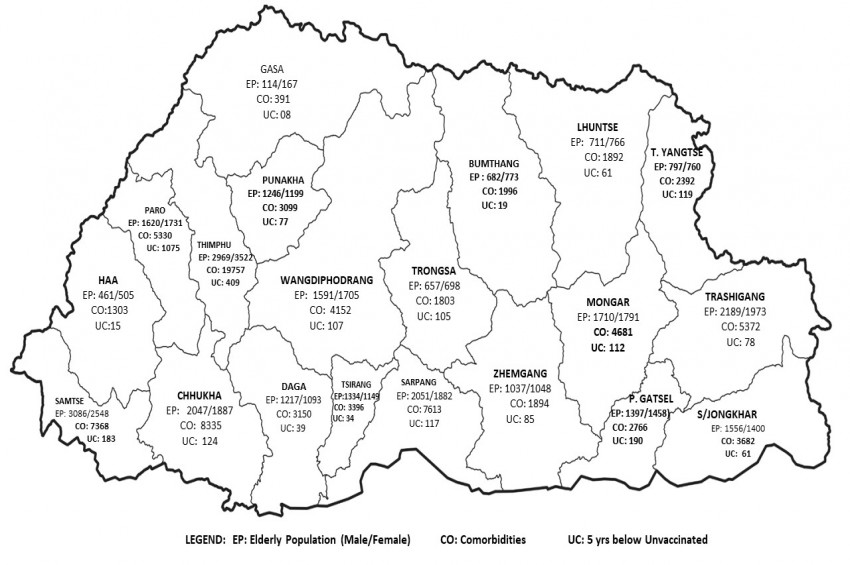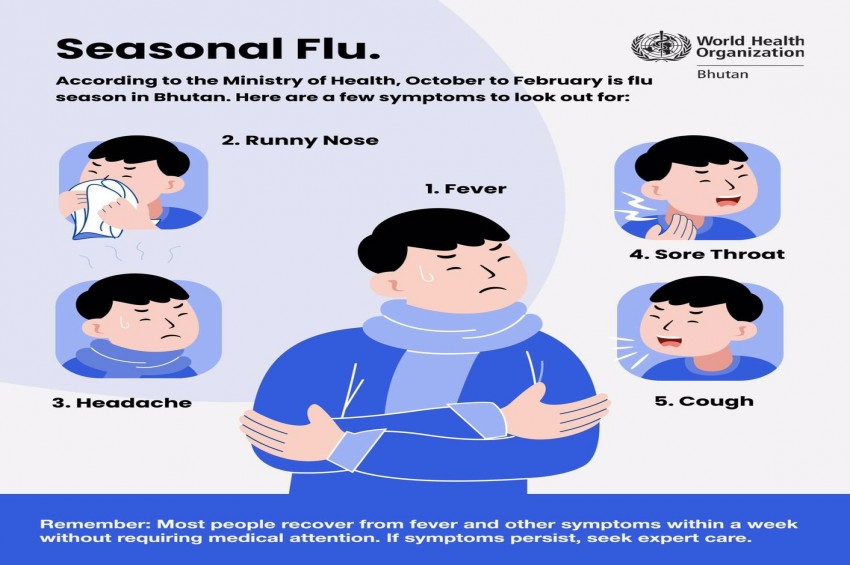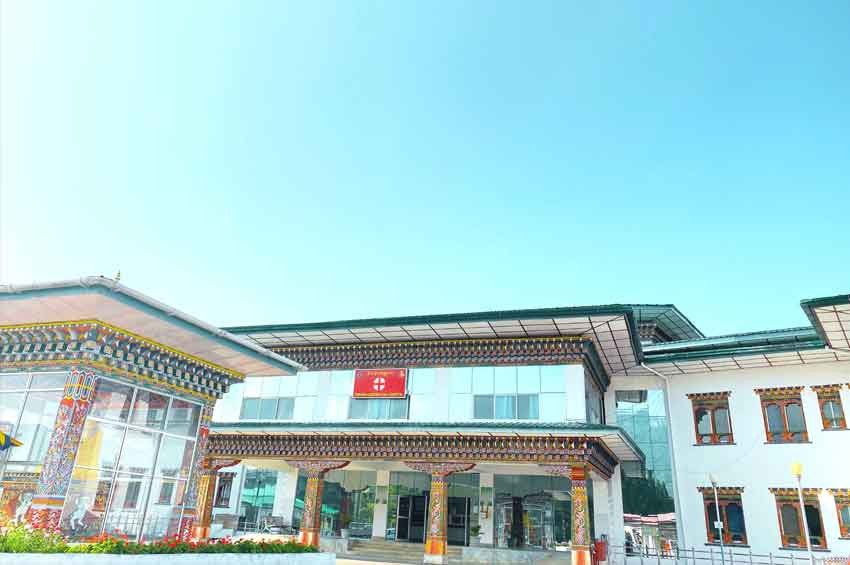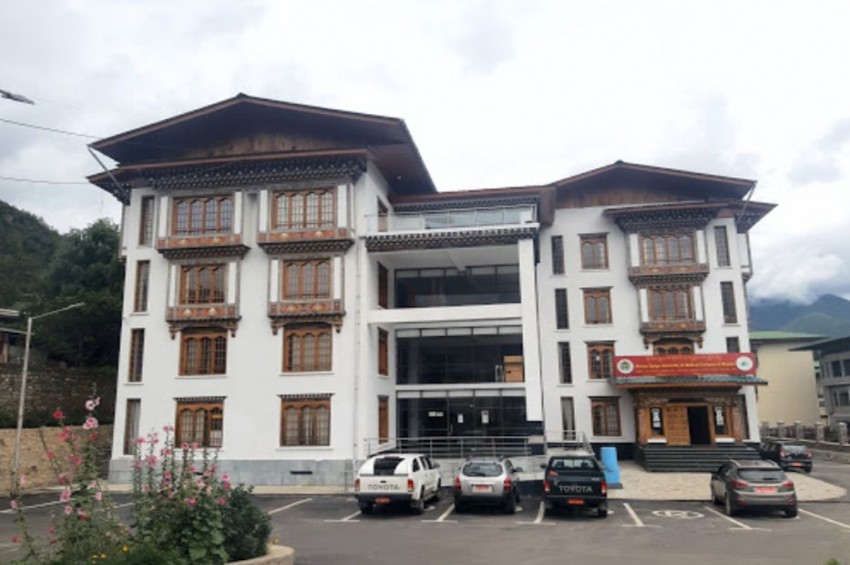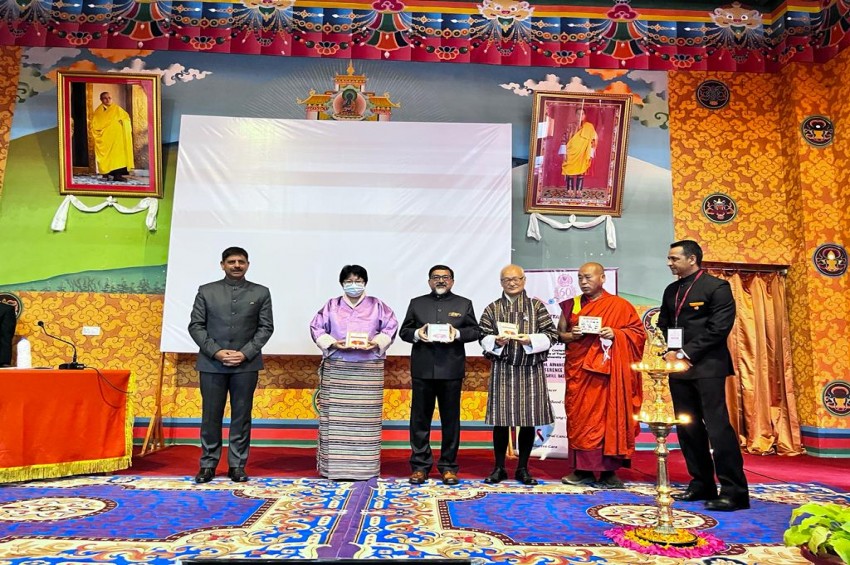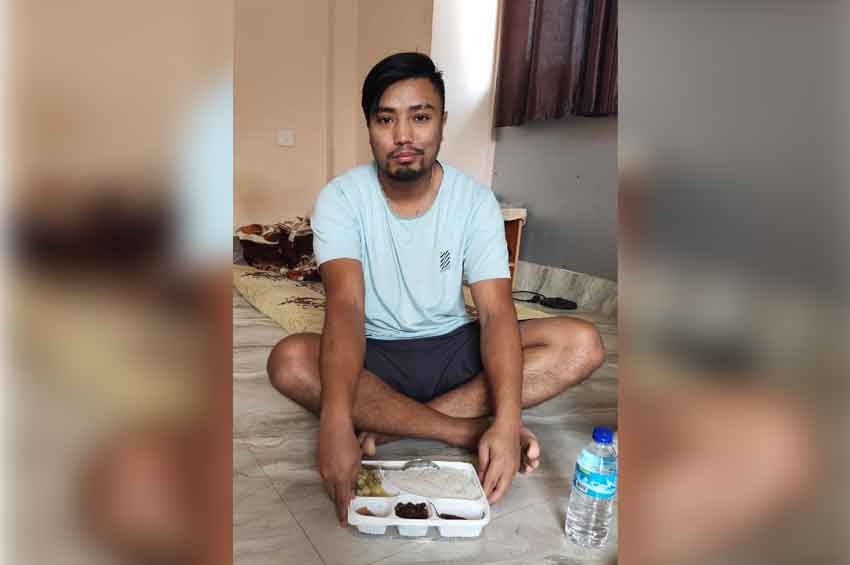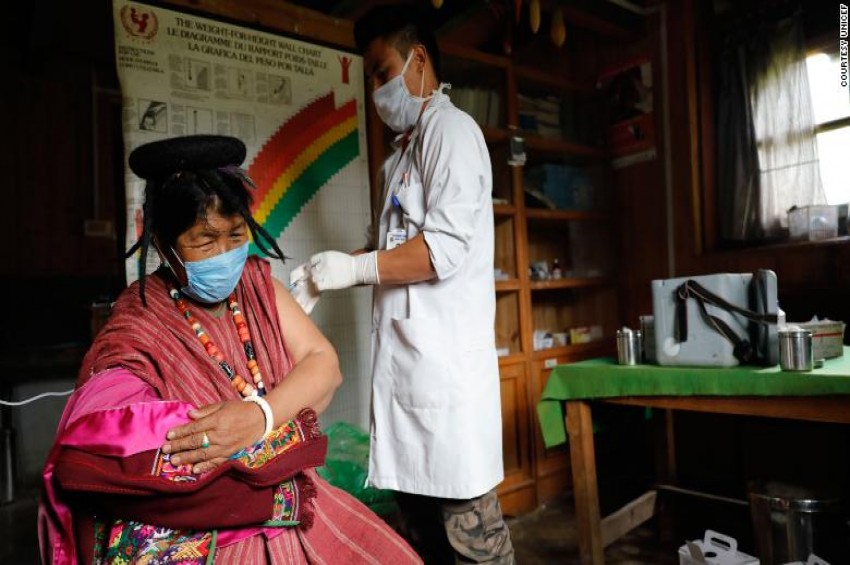Data shows Thimphu has the highest number of elderly people (6,491) and those living with comorbidities (19,757)
Upon Royal Command, Reverse Isolation Facilities (RIFs) have been established in all 20 Dzongkhags of Bhutan to protect the vulnerable group, should a scenario of mass infection or a surge of positive cases in communities happen. As announced by the Office of the Gyalpoi Zimpoen (OGZ), “this Kidu initiative stems from Bhutan’s continuing policy of protecting lives during the pandemic.” And as mentioned by the Prime Minister (PM) Dr. Lotay Tshering, such services are provided in other countries but not for free. It is a lucrative business. However, under His Majesty the King’s Kidu, it is being provided free of cost here.
Briefing the nation about it, Head of the Kidu medical team, Dr Phurb Dorji had earlier said more than 300 vulnerable people including their attendants have been moved to safety in the reverse isolation facilities (RIF) across the country, which includes 178 sick people, 64 patient attendants and 57 others who don’t have comorbidities but need assistance. According to the doctor, these are people without families, siblings and ones having other problems. Dr. Phurb said Thimphu has the most people availing the facility followed by Bumthang.
Data obtained by The Journalist through sources in the health ministry show Thimphu has the maximum number of people who are above 65, those with comorbidities and children under the age of five. While sources said that the data is being revised regularly as figures are not constant, according to it there are 2,969 and 3,522 elderly men and women in Thimphu respectively, 19,757 people with comorbidities and 409 children below the age of five. While all may not seek support from the RIFs, it could become a huge challenge if cases in Thimphu surge. As said by Dr. Phurb, Thimphu could not accommodate all availing the facility and were extended to Paro.
Dr. Phurb further said it was Bumthang after Thimphu, seeking the facility service. Records from the above data show that Bumthang has 682 and 773 elderly men and women respectively, 1,996 people with co-morbidities and 19 children below the age of five.
Chukha district follows Thimphu with 2,047 and 1,887 elderly men and women respectively. The district has recorded 8,335 people as having comorbidities and 124 children below the age of five. Third in line is Samtse district with 3,086 and 2,584 elderly males and females respectively, 7,638 people with comorbidities and 183 children under the age of 5. Close to Samtse is Sarpang district with 2,051 and 1,882 elderly males and females respectively, 7,613 people with comorbidities and 117 children under the age of 5.
From the eastern Dzongkhags, Mongaar tops the list with 1,710 and 1,791 elderly males and females, 4,681 with comorbidities and 112 children below the age of five.
Gasa district with 114 and 167 elderly males and females, 391 with comorbidities and 8 children below the age of five has the lowest number of the vulnerable group.
As per the data obtained, Bhutan has 56,550 elderly citizens (above the age of 65), 90,642 people with comorbidities and 3,018 children below the age of five. In a former annoucement to the nation, Prime Minister, Dr. Lotay Tshering said there are about 50,000 people above the age of 65 and about 90,000 with comorbidities.
Meanwhile, each dzongkhag has a minimum of two RIFs and without government structures build to be used for such purposes, hotels, government guesthouses and gewog office spaces are being used.
Dr. Phurb said some dzongkhags even have three to four facilities depending on the population and cases. As of March 24, 2022, there were already about 1,650 beds in total, with about 57,000 registering for the facility. However, the numbers are dynamic and keep on increasing. Looking at the figures of the elderly and those with co-morbidities, 57,000 may seem low. However, people have the option to use the Reverse Facility Services or not. Some would decide to take care of their elders at home.
Informing the Nation, Prime Minister (PM) Dr. Lotay Tshering said that all services will be provided in the RIFs. He said that if needed, services like feeding to cleaning body fluids and wastes will be made available. He added that if family members want to stay with the patients, they can do so.
These isolation facilities have de-suups plus members, who are trained in first aid serving.
Concerning the duration of stay at their facilities, Dr Phurb said it will depend on the Covid-19 situation in the communities. People will need to stay longer if the outbreak persists.
Meanwhile, these special facilities will be managed under strict COVID protocol. Relatives cannot meet patients or drop food at the facility. Entering and exiting facilities intermittently will not be accepted. Additionally, people who do not want to join the facilities but wish to avail other services at home will also be assisted.
An announcement from the Office of the Gyalpoi Zimpoen (OGZ) earlier said that His Majesty The King’s foremost concern during the new phase in our national strategy to manage the COVID-19 pandemic is the health and wellbeing of those individuals who are most vulnerable to COVID-19, particularly due to health comorbidities.
Due to this, RSFs have been put in place in all 20 Dzongkhags of Bhutan upon Royal Command, to protect those individuals most vulnerable to COVID-19, and provide a safe space where they can effectively isolate themselves when there is a surge of positive cases in their community. This Kidu initiative stems from Bhutan’s continuing policy of protecting lives during the pandemic.
The RIFs will have dedicated health professionals and personal caregivers, and be connected to relevant health facilities to ensure the wellbeing of residents in isolation. Priority will also be given to boosting the overall health of the residents with medical care and supplements. The RIFs will be maintained under strict COVID-19 protocols.
Upon Royal Command, Reverse Isolation Facilities (RIFs) have been established in all 20 Dzongkhags of Bhutan to protect the vulnerable group, should a scenario of mass infection or a surge of positive cases in communities happen. As announced by the Office of the Gyalpoi Zimpoen (OGZ), “this Kidu initiative stems from Bhutan’s continuing policy of protecting lives during the pandemic.” And as mentioned by the Prime Minister (PM) Dr. Lotay Tshering, such services are provided in other countries but not for free. It is a lucrative business. However, under His Majesty the King’s Kidu, it is being provided free of cost here.
Briefing the nation about it, Head of the Kidu medical team, Dr Phurb Dorji had earlier said more than 300 vulnerable people including their attendants have been moved to safety in the reverse isolation facilities (RIF) across the country, which includes 178 sick people, 64 patient attendants and 57 others who don’t have comorbidities but need assistance. According to the doctor, these are people without families, siblings and ones having other problems. Dr. Phurb said Thimphu has the most people availing the facility followed by Bumthang.
Data obtained by The Journalist through sources in the health ministry show Thimphu has the maximum number of people who are above 65, those with comorbidities and children under the age of five. While sources said that the data is being revised regularly as figures are not constant, according to it there are 2,969 and 3,522 elderly men and women in Thimphu respectively, 19,757 people with comorbidities and 409 children below the age of five. While all may not seek support from the RIFs, it could become a huge challenge if cases in Thimphu surge. As said by Dr. Phurb, Thimphu could not accommodate all availing the facility and were extended to Paro.
Dr. Phurb further said it was Bumthang after Thimphu, seeking the facility service. Records from the above data show that Bumthang has 682 and 773 elderly men and women respectively, 1,996 people with co-morbidities and 19 children below the age of five.
Chukha district follows Thimphu with 2,047 and 1,887 elderly men and women respectively. The district has recorded 8,335 people as having comorbidities and 124 children below the age of five. Third in line is Samtse district with 3,086 and 2,584 elderly males and females respectively, 7,638 people with comorbidities and 183 children under the age of 5. Close to Samtse is Sarpang district with 2,051 and 1,882 elderly males and females respectively, 7,613 people with comorbidities and 117 children under the age of 5.
From the eastern Dzongkhags, Mongaar tops the list with 1,710 and 1,791 elderly males and females, 4,681 with comorbidities and 112 children below the age of five.
Gasa district with 114 and 167 elderly males and females, 391 with comorbidities and 8 children below the age of five has the lowest number of the vulnerable group.
As per the data obtained, Bhutan has 56,550 elderly citizens (above the age of 65), 90,642 people with comorbidities and 3,018 children below the age of five. In a former annoucement to the nation, Prime Minister, Dr. Lotay Tshering said there are about 50,000 people above the age of 65 and about 90,000 with comorbidities.
Meanwhile, each dzongkhag has a minimum of two RIFs and without government structures build to be used for such purposes, hotels, government guesthouses and gewog office spaces are being used.
Dr. Phurb said some dzongkhags even have three to four facilities depending on the population and cases. As of March 24, 2022, there were already about 1,650 beds in total, with about 57,000 registering for the facility. However, the numbers are dynamic and keep on increasing. Looking at the figures of the elderly and those with co-morbidities, 57,000 may seem low. However, people have the option to use the Reverse Facility Services or not. Some would decide to take care of their elders at home.
Informing the Nation, Prime Minister (PM) Dr. Lotay Tshering said that all services will be provided in the RIFs. He said that if needed, services like feeding to cleaning body fluids and wastes will be made available. He added that if family members want to stay with the patients, they can do so.
These isolation facilities have de-suups plus members, who are trained in first aid serving.
Concerning the duration of stay at their facilities, Dr Phurb said it will depend on the Covid-19 situation in the communities. People will need to stay longer if the outbreak persists.
Meanwhile, these special facilities will be managed under strict COVID protocol. Relatives cannot meet patients or drop food at the facility. Entering and exiting facilities intermittently will not be accepted. Additionally, people who do not want to join the facilities but wish to avail other services at home will also be assisted.
An announcement from the Office of the Gyalpoi Zimpoen (OGZ) earlier said that His Majesty The King’s foremost concern during the new phase in our national strategy to manage the COVID-19 pandemic is the health and wellbeing of those individuals who are most vulnerable to COVID-19, particularly due to health comorbidities.
Due to this, RSFs have been put in place in all 20 Dzongkhags of Bhutan upon Royal Command, to protect those individuals most vulnerable to COVID-19, and provide a safe space where they can effectively isolate themselves when there is a surge of positive cases in their community. This Kidu initiative stems from Bhutan’s continuing policy of protecting lives during the pandemic.
The RIFs will have dedicated health professionals and personal caregivers, and be connected to relevant health facilities to ensure the wellbeing of residents in isolation. Priority will also be given to boosting the overall health of the residents with medical care and supplements. The RIFs will be maintained under strict COVID-19 protocols.

